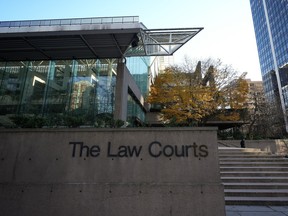Avtar Singh Johal sued his son and ex-daughter-in-law for part of down payment he said he lent to them for $1.3M home after couple split

A man who agreed to help his newlywed son and daughter-in-law buy a house sued the couple for the $500,000 when they split up 10 years later, saying he had always intended the money as a loan not a gift.
Recommended Videos
Avtar Singh Johal wasn’t successful with that lawsuit in B.C. Supreme Court. Now, the B.C. Court of Appeal has upheld that ruling.
The trial judge “provided detailed reasons for her conclusion that a gift was intended,” wrote Appeal Court Justice Nitya Iyer on behalf of justices Lauri Ann Fenlon and Karen Horsman, who agreed with her ruling.
Iyer wrote that Johal challenged the trial judge’s analysis of the evidence, but didn’t show the appeal court where she erred.
“Instead, their arguments invite this court to reweigh the evidence and reach different factual conclusions on the evidence,” she wrote. “This is not the proper role for this court.”
Johal and 672047, the numbered company he owns with his wife, provided a company bank draft for $500,000 to allow his son, Harvinder Singh Johal, and his wife, Susan Little, to buy a $1.3 million house, according to the Appeal Court judgment released this week.
The couple married in the summer of 2009, bought the house in 2010, and separated in late 2018. They then listed the house on Grand Boulevard in North Vancouver for sale, it said.
Avtar Singh Johal sued for a share in the proceeds, arguing the fund he provided were an equity investment by him and his company, and asking the court to rule the money was a loan, said the appeal judgment.
Harvinder Singh Johal told the lower court that the money was an interest-free loan, but Susan Little said she understood it was a gift.
The couple, he working in IT and she as a teacher, met in late 2007 and moved in together in 2008, living in the east Vancouver condo that Little bought before they met, according to the B.C. Supreme Court Justice Jacqueline Hughes.
They began house hunting after their 2010 wedding, and made several unsuccessful offers, despite having $750,000 in pooled resources plus mortgage financing of $420,000. So they agreed to ask his parents for financial help, it said.
The testimony of the father and son shifted from the son asking for “help” or “financial assistance” to specifically asking for a “loan,” wrote Hughes.
Little testified that Avtar Singh Johal said he would be happy to give them the money for a home as Harvinder Singh Johal was his only son, but the father and son denied he said this, Hughes said.
“I find it entirely logical and plausible that a parent in Avtar’s position and with his financial means would offer a gift of this nature to his son and daughter-in-law to help them purchase a home in contemplation of starting a family,” Hughes wrote in saying she preferred Little’s testimony.
Little also testified that in 2011, while reviewing a list of wedding gifts, she told her husband that his parents hadn’t given them a gift, and he replied that they had given them the money.
Johal testified he didn’t recall that comment or whether his parents had given them a gift, Hughes wrote.
Johal referred to a “loan from Dad” in one entry in a financial spreadsheet, while another entry called it a gift, according to the judgment.
While arranging for mortgage financing, Avtar Singh Johal and the young couple were required to sign a “gift letter” to specify the funds were a genuine gift that did not ever have to be repaid. The signing of such gift letters are standard, as it assures the mortgage provider there isn’t a second mortgage on the property.
The father agreed under cross-examination that he read, understood and signed the second gift letter and later that day transferred the funds to his son’s account, it said.
“Avtar was clear and consistent throughout his testimony that he did not tell Harvinder or Ms. Little that he considered the funds to be an equity investment in whatever property they eventually purchased,” Hughes wrote.